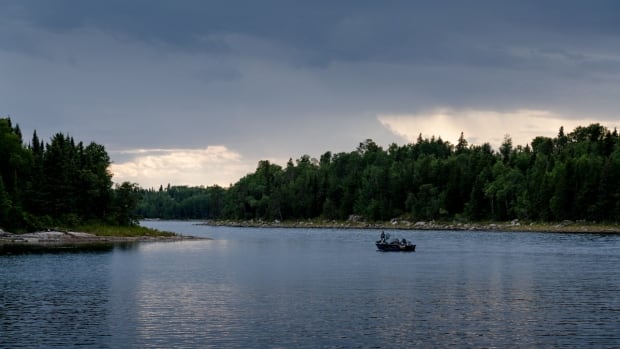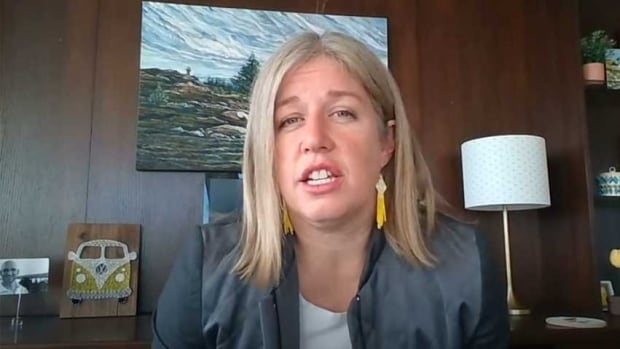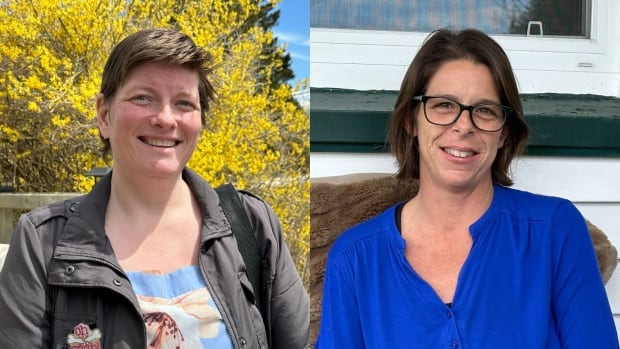A First Nation in northwestern Ontario that has faced decades of mercury poisoning is suing the provincial and federal governments, arguing they’ve failed to protect its treaty rights.
Asubpeeschoseewagong Netum Anishinabek First Nation — known as Grassy Narrows — filed the lawsuit in Ontario’s Superior Court of Justice on Tuesday morning.
It argues the governments have violated their duties under Treaty 3 by failing to protect against or remedy the effects of mercury contamination in the English-Wabigoon River system.
The allegations in this lawsuit haven’t been tested in court.
Contamination of the river system dates back to the 1960s and ’70s when Dryden’s paper mill in northwestern Ontario dumped an estimated nine tonnes of mercury into the water.
Generations of people have consumed fish from the river. According to a previously reported study by medical specialists, about 90 per cent of the community of roughly 1,000 people experience symptoms of mercury poisoning. They include Chief Rudy Turtle.
“Our mercury nightmare should have ended long ago, but it has been longer and worse because of the government’s failure to live up to its obligations,” Turtle said in a news release on Tuesday.
‘A test of … commitment to truth’
For years, environmental advocates have called for the river to be cleaned up and the mill to be shut down.
In late May, a new study from Western University in London, Ont., revived these demands with a report suggesting mercury contamination in the river system has been made worse by ongoing industrial pollution.
NDP MPPs accused the Ontario government of inaction following the release of a report showing ongoing methylmercury contamination in the English-Wabigoon River system in northwestern Ontario. But the Environment Minister says the province has been working to support Indigenous communities on the issue.
“The government has egregiously violated its obligations to Grassy Narrows by failing to ensure that Grassy Narrows people could safely practise their right to fish — a cornerstone of Grassy Narrows’ sustenance and Indigenous way of life,” says a statement from the First Nation that was also issued Tuesday.
“This case will be a test of Ontario’s and Canada’s commitment to truth, reconciliation and justice following one of Canada’s worst environmental and human rights catastrophes.”
Lawsuit seeks to restore ‘way of life’
Grassy Narrows, about 150 kilometres from Dryden near the Ontario-Manitoba border, is being represented by both Toronto-based firm Cavalluzzo LLP and Ratcliff LLP out of Vancouver.
At this point, there is no set dollar amount for how much compensation the First Nation is seeking. However, the types of remedies relate to restoring the environment, “upon which their health, and their livelihoods and their treaty rights depend,” Adrienne Telford, co-lead legal counsel with Cavalluzzo LLP, said in an interview with CBC News.

“Grassy Narrows is a community in crisis,” Telford said. “They require significant financial, and socioeconomic and health supports to allow community members to restore their health, and their well-being and their way of life.”
In 2017, the federal government committed to building a Mercury Care Home in Grassy Narrows. Indigenous Services Canada recently reaffirmed its pledge of about $140 million for the project.
In the same year, the Ontario government committed $85 million to fund mercury cleanup and remediation efforts in the English-Wabigoon River system.
About seven years later, the river remains toxic. Construction on the Mercury Care Home is expected to start this summer and take two to three years to complete.
“If this was Ontario cottage country, the river would have been cleaned up decades ago, the pollution would have stopped and the harms properly compensated,” Telford said.
Ontario commits to ‘correcting this historic wrong’
When pressed by Kiiwetinoong MPP Sol Mamakwa during Monday’s question period in the Ontario Legislature, the minister of the environment, conservation and parks, Andrea Khanjin, said the government is committed to remediating the mercury contamination.
Technical experts with the ministry have met with First Nations leaders and those who led the Western University study — though additional work is needed before the researchers’ report is finalized, Khanjin said.
The Grassy Narrows First Nation has long suffered the effects of mercury pollution in its water but a new study shows effluent from a nearby pulp mill is exacerbating the problem with further contaminants.
Sandy Shaw, MPP for Hamilton West—Ancaster—Dundas and NDP environment, conservation and parks critic, called that answer “disappointing.”
“This is a human and ecological disaster and it has been going on for generations. For heaven’s sake, Speaker, the time for studies has well passed,” Shaw said.
Khanjin responding by pointing to the work being done with Ontario’s English and Wabigoon Rivers Remediation Panel.
“We’re taking the politics out of this and referring to the science because this government remains committed to correcting this historic wrong.”







